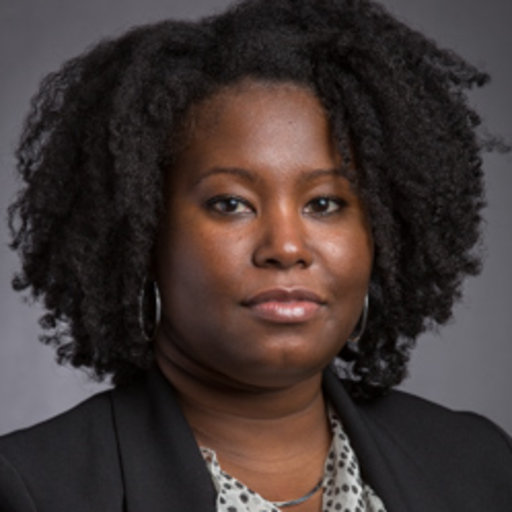Welcome
Welcome and thank you for your interest in the Juvenile Justice Institute (JJI). Please take a moment to read a message from Dr. Carol M. Huynh.
Welcome and thank you for your interest in the Juvenile Justice Institute (JJI). Please take a moment to read a message from Dr. Carol M. Huynh.
About the Juvenile Justice Institute
JJI conducts and supports interdisciplinary research, provides technical assistance to stakeholders and strives to influence the juvenile justice policy and practice landscape locally, at the state level and nationally. JJI applies a framework that prioritizes fairness and opportunity to advance an evidence-informed juvenile justice system.
North Carolina Communities Served
Publications
Grant Funding
JJI was established in 1999 by the North Carolina General Assembly (Senate Bill 399). JJI is housed within the Department of Criminal Justice.

The elimination of health disparities among youth, families and communities of color is a JJI priority area. To effectively reduce the negative impact of various health conditions, effective community engagement is a critical starting point. JJI is a key partner in the Community Engagement Core (CEC) of NCCU’s RCMI Center for Health Disparities Research. Dr. Taylor serves as co-lead of the CEC and has published work describing NCCU’s successful collaborative partnership to reduce health disparities with a rural underserved community in North Carolina.

JJI leverages its expertise in juvenile justice and experience with local, state and national funders to provide capacity-building services to non-profit organizations with an explicit focus on serving youth and young adults. These services may include providing introductory grant writing training and technical assistance, community engagement support and assistance in developing and measuring program outcomes among other supports.
Contact us if you are interested in our capacity-building services.
The North Carolina State Advisory Group for Juvenile Justice-Racial and Ethnic Disparities (SAG-RED) subcommittee envisions a state where all children are free from crime and violence. If children come into contact with the justice system, the contact should be both just and beneficial to them, and all should be treated equitably. The SAG-RED subcommittee aims to create a criminal justice system that is committed to recognizing the effects of disproportionate minority contacts and creating opportunities to decrease RED locally and at the state level. The SAG-RED subcommittee provides leadership, coordination, information and resources to address racial and ethnic disparities. The subcommittee works to:
The SAG-RED subcommittee supports the efforts of communities to reduce the overrepresentation of youth of color in the juvenile justice system and ensure equal treatment for all youth.
Community justice broadly refers to all variants of crime prevention and justice activities that explicitly include the community in their processes and set the enhancement of community quality of life as a goal (Karp and Clear, 2000).
JJI uses a community justice framework in its work with local jurisdictions and youth-serving programs to ensure communities are informed by cutting-edge research in their work with justice system-involved youth and families. Our community justice work includes serving on the Youth Council of the Durham Workforce Development Board, the Wake County Juvenile Crime Prevention Council (JCPC) and other local initiatives across the Triangle and beyond.
Dr. Taylor is an advisory committee member of the Racial Justice and Abolition Democracy (RJAD) project, a Mellon Foundation Just Futures Initiative project at Columbia University.
Meet Our Staff

Huynh, Carol
Assistant Professor and Director, Juvenile Justice Institute
Criminal Justice
JJI Faculty Fellows
The JJI Faculty Fellows program is designed to bring faculty researchers from around campus to the Juvenile Justice Institute in order to explore research questions and to promote interdisciplinary research opportunities focused on youth, young adults, the justice system and related areas. This two-semester program requires applicants to conduct collaborative research with the goal of producing two publications (peer-reviewed) and a research grant proposal on juvenile justice-related topics of interest. Projects focused on cutting-edge research questions that take advantage of interdisciplinary approaches are preferred. A showcase event highlighting the research projects of the JJI Faculty Fellows will take place each spring.
Dr. Boehme, Topic: Food Deserts, Gas Stations and Exposure to Community Violence: Geospatial Approaches for Studying Crime
Dr. Watkins, Topic: When Helping Professionals Need Help: The Compounding Effects of Socioeconomic, Racial and Profession-Related Stress on Juvenile Justice and Social Workers

Sneed Watkins, Charity
Assistant Professor
Social Work
JJI in the News
Keep up with news coverage of our work.

On this podcast, the Legal Eagle Review discusses the expanding protections for juveniles in North Carolina with Dr. Lorraine Taylor, the former executive director of the NCCU Juvenile Justice Institute, and Professor Dorothy Hairston-Mitchell, the supervising attorney for the Juvenile Clinic at the NCCU School of Law.

Read this article to learn about North Carolina Central University's efforts to lessen the health disparities in Halifax County, North Carolina, as well as the ways that NCCU’s RCMI-Center for Health Disparities built trust with the community.

This article details the disparities in jail time between Black and white people in jail.

This article discusses possible ways to reduce gang violence, including opinions from NCCU faculty.

Read this article to learn about the historic change of Raise the Age, what it took to reach that decision and what the results will be.

This article discusses the positive changes being made for juvenile rehabilitation but warns readers to remain vigilant for racial disparities at every decision-making point within the juvenile justice system.

View this article to hear thoughts and research from the associate director of the Juvenile Justice Institute at NCCU on the best way to steer young members of the community away from trouble.

This short article covers the impact of COVID-19 on community-based interventions.